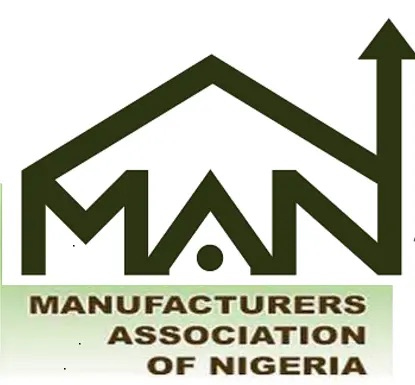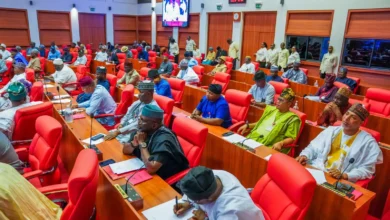Manufacturers Face Crisis as Unsold Inventory Hits N1.24trn
Manufacturing Sector Grapples with Rising Energy Costs and Declining Consumer Demand

The Nigerian manufacturing sector is experiencing an unprecedented crisis as unsold finished products inventory surged to N1.24 trillion in the first half of 2024, marking a 357.6 percent increase from N271 billion recorded in the corresponding period of 2023, according to the latest economic review by the Manufacturers Association of Nigeria (MAN).
The alarming rise in unsold inventory, attributed to plummeting consumer purchasing power, reflects the severe impact of escalating inflation, fuel subsidy removal, and naira devaluation on the sector. These economic challenges have significantly affected Nigerians’ ability to afford basic necessities, leading to a substantial decline in consumer demand for manufactured goods.
Adding to the sector’s woes, manufacturers faced a substantial increase in operational costs due to energy-related challenges. The report reveals that manufacturers spent N238.31 billion on alternative energy sources in the first half of 2024, representing a 7.69 percent increase from the second half of 2023. This surge in energy costs was primarily driven by higher prices for diesel, gas, and other energy sources, coupled with the need for self-generated power due to unreliable national grid supply.
The situation was further complicated by a more than 200 percent increase in electricity tariffs imposed by Distribution Companies (DisCos), despite a marginal improvement in power supply to industries, which averaged 11.28 hours per day during the period under review. This significant tariff hike has placed additional financial strain on manufacturers, who are already grappling with multiple operational challenges.
MAN’s Director-General, Segun Ajayi-Kadir, emphasized the severity of the situation, noting that the first half of 2024 presented significant challenges for Nigeria’s manufacturing sector. “While some sectors showed resilience and growth, others struggled with declining production values, rising inventories, and reduced employment. The report underscores the urgent need for Nigeria to implement decisive and coherent economic reforms to address these challenges,” he stated.
The economic review also highlighted a slight decline in capacity utilization, which dropped to 56.4 percent in H1 2024 from 56.5 percent in H1 2023. However, there was a 2.8 percentage point increase compared to H2 2023, indicating some recovery despite the challenging business environment. Real manufacturing output experienced a decline of 1.66 percent year-on-year, falling to N1.34 trillion from N1.36 trillion in H1 2023.
On a positive note, the sector showed some resilience in certain areas. The manufacturing sector’s local raw material sourcing improved slightly to 56.03 percent in H1 2024, up from 55.4 percent in H1 2023. Investment in the manufacturing sector also continued to rise, reaching N250.13 billion in H1 2024, representing a 29.63 percent year-on-year increase.
Ajayi-Kadir outlined key areas requiring immediate attention, including enhancing policy consistency, improving the business environment, and fostering economic diversification. “The success of these reforms will be crucial in reversing the current economic downturn, creating jobs, reducing inflation, and improving the overall welfare of Nigerian citizens,” he emphasized.
The report suggests that the path forward for Nigeria’s manufacturing sector heavily depends on the government’s ability to implement effective economic reforms and manage the current challenges. The resilience of the country’s policy framework and the effectiveness of its economic management will be crucial in determining the sector’s recovery trajectory.
Industry experts note that the current situation requires a multi-faceted approach, including measures to boost consumer purchasing power, stabilize the foreign exchange market, and address the persistent energy crisis affecting manufacturers. The significant increase in unsold inventory not only represents a financial burden for manufacturers but also signals deeper structural issues within the economy that need urgent attention.
As the manufacturing sector navigates through these turbulent times, stakeholders emphasize the importance of government intervention through targeted policies and reforms to stimulate demand, reduce operational costs, and create a more conducive environment for manufacturing activities. The success of these interventions will be critical in preventing further deterioration of the sector’s performance and ensuring its contribution to Nigeria’s economic recovery and growth.






